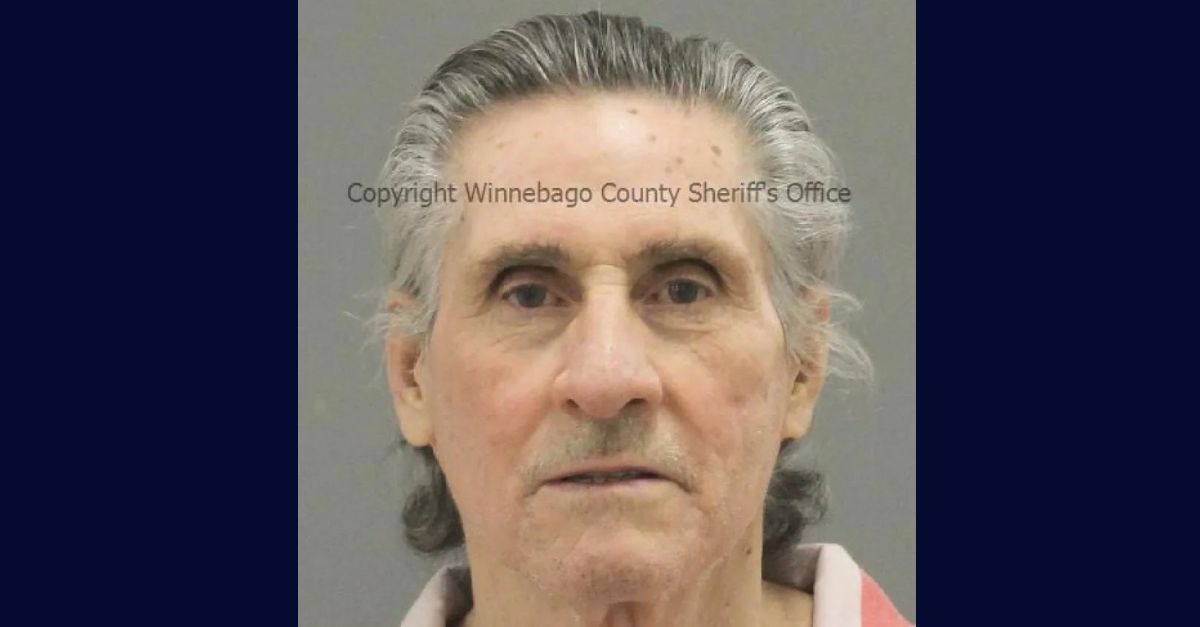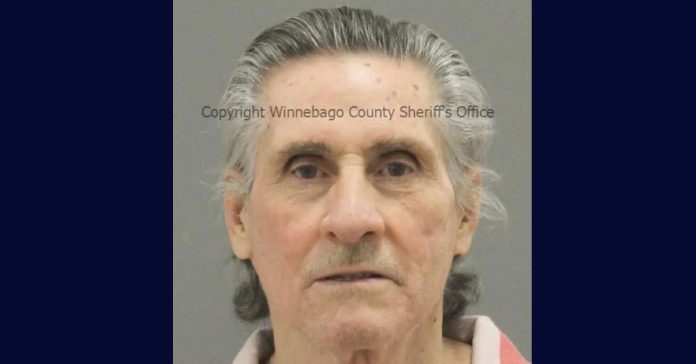
Joseph Bargos was sentenced to 5 years in prison after he was caught trying to smuggle nearly 2,000 fentanyl-laced oxycodone pills into Chicago. Bargos, 74, had received clemency from President Barack Obama. (Winnebago County Sheriff’s Office via Chicago Sun-Times)
A man who was granted clemency by President Barack Obama in 2015 couldn’t take advantage of a second chance at life and was arrested again four years later trying to smuggle nearly 2,000 fentanyl-laced oxycodone pills into Chicago, federal prosecutors say.
Joseph Bargos, 74, was sentenced to more than five years in prison on Tuesday.
Bargos’ drug distribution convictions date back to 1967, the U.S. Attorney’s Office for the Northern District of Illinois said in his sentencing memorandum. In 1993 a federal judge sentenced Bargos to a 30-year prison sentence for distribution of cocaine and unlawful use of a communication facility.
But Bargos’ was one of about 1,600 people to receive a commutation from Obama in 2015. The commutations were part of a program under Obama to shorten prison sentences for inmates who would likely have received a lesser sentence in 2014. Among the qualifications to receive the commutation the inmates had to have no ties to large scale criminal organizations, served at least 10 years of their sentence and have no history of violence. The inmates were released, but put on probation.
The project has led to varying results, with some who went free thriving while others have returned to a life of crime. The Chicago Sun-Times featured four such men, including Bargos. Out of the four, Bargos and two others landed back in jail. The fourth, Jesse Webster, landed a job at Catholic Charities and remains free. The newspaper reported out of the more than 30 people in the U.S. District of Northern Illinois who received clemency under the program, less than 10 percent reoffended.
Bargos’ attorney William Hardwicke said in his sentencing memo that his client initially tried to lead a lawful life. He got a job as a home health care worker and drove for Uber. In addition, he reconnected with his children and grandchildren and became engaged to be married. But he lost the job with Uber after the city of Chicago required drivers to obtain a chauffeur’s license. Because Bargos was under community supervision, he could not obtain the license, his lawyer said. This put a harsh financial burden on Bargos so he went back to doing what he did best: dealing drugs.
Prosecutors say federal agents began investigating a “network of narcotics traffickers” in November 2017. Among them was Bargos and they tapped his phone. In April 2019, agents suspecting he was carrying drugs tracked him on a bus traveling from Texas to Chicago. On April 13, 2019, they confronted him after he exited the bus in Chicago. He was carrying a backpack and luggage. He then lied and said he was traveling back from a wedding in Cincinnati, according to prosecutors.
A police dog detected drugs and a search of his bags revealed he was carrying 1,883 pills, agents said.
“In addition to squandering the opportunity defendant received through the presidential commutation, defendant’s trip to Texas to procure fentanyl was the second time he violated his release conditions by engaging in unauthorized travel,” feds wrote in the sentencing memo.
Bargos traveled to Mexico without permission, which was a violation of his parole, but he was given a pass after he assured the probation office he wouldn’t do it again.
On Sept. 5, Bargos pleaded guilty to possessing more than 40 grams or more of fentanyl which carries a mandatory minimum of 5 years in prison. Prosecutors requested the judge impose a 74-month sentence. They argued Bargos shouldn’t receive leniency because of his age.
“Defendant is a lifelong drug dealer who committed this crime at age 70 after never pursuing a sustained period of lawful employment,” prosecutors wrote.
Hardwicke said Bargos caught COVID-19 while in jail and went into cardiac arrest. He has to wear a deliberator vest should his heart stop again, Hardwicke wrote. His health should be taken into consideration, according to Hardwicke.
Ultimately, the judge imposed a 62-month sentence.
Have a tip we should know? [email protected]

